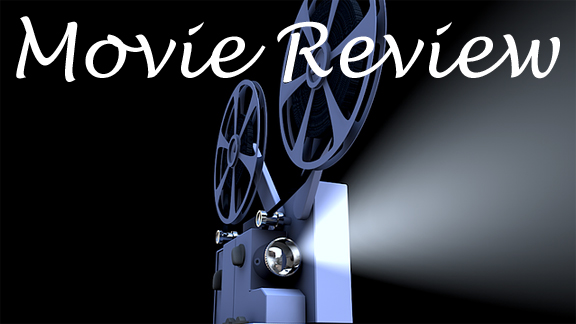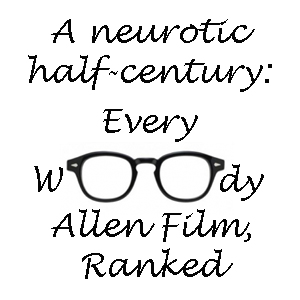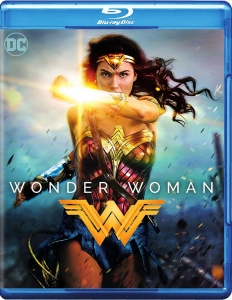“Wonder Woman” — now available via Redbox and streaming — poses the question: What would happen if a superhero was dropped into the middle of a human war? The easy answer is we’d get lots of cool action scenes.
In the film’s centerpiece spectacle amid the Great War, the Allies and the Germans are entrenched, with 200 yards of no-man’s-land between them. The Germans have taken civilians as slave labor. Diana (Gal Gadot) wants to rescue them, but it’s tactically impossible – except for the wild-card factor of her superpowers.
Bright character against a grim backdrop
Directed by Patty Jenkins, whose resume includes “Monster” (2003) and some episodes of “The Killing,” “Wonder Woman” favors a grim palette, whereas the design of the title character – both in her look and her arc — is bright and hopeful. This is a war-movie scene: all browns and grays and mud and guns.

“Wonder Woman” (2017)
Director: Patty Jenkins
Writers: Allan Heinberg, Zack Snyder, Jason Fuchs
Stars: Gal Gadot, Chris Pine, Robin Wright
In steps Diana with her functional yet awesome red, blue and gold costume and an array of powers that are effective without being crassly violent. (Batman would only begrudgingly approve, had he been around in the 1910s.) Her gauntlets deflect bullets, her shield deflects cannonballs and she can spring through the air with a head of steam. A glowing lasso – which works as a truth-compelling device in quieter scenes – completes the arsenal. Needless to say, Diana frees the prisoners.
But in a wider sense: Could the superhero stop the war? Written by TV veteran Allan Heinberg, “Wonder Woman” struggles with this question throughout. It rises to the surface in the final act, but initially it’s just something that percolates in the back of your mind as you watch the blockbuster box-checking moments. Which isn’t a bad thing.
I found the early montage narrated by Diana’s mom, Hippolyta (Connie Nielsen), to be quite engaging, especially considering that Wonder Woman’s backstory isn’t as tidy as Batman’s or Superman’s. As a very casual observer of superhero comics, I had picked up that Wonder Woman is an “Amazon,” and naturally assumed this means she hails from the Brazilian rain forest.
However, in DC lore, Amazonians are human residents (all female) of a hidden island, and this film suggests it’s more likely in the Mediterranean than the Caribbean. Diana, for her part, is a half-human, half-god – although in traditional superhero fashion she doesn’t tap into her powers till she hits adulthood.
Giggly humor
American Steve Trevor (“Star Trek’s” Chris Pine), a spy for the Allies, crashes his warplane near this island of women, who help him fight off the Germans who follow him through the magical barrier. Whether it’s story convenience or something more profound that causes Steve to breach the bubble is a question for geekier debate.
It’s inevitable that the getting-to-know-you segment of the film will be peppered with giggly humor about Diana seeing a man for the first time; the penis joke was likely in the earliest drafts. Nonetheless, it is extremely cute when Diana wonders why Steve won’t sleep next to her and he mumbles something about being respectful.

Heinberg’s script and Gadot’s performance infuse Diana with a delicate balance that works: She’s both emotionally innocent and a strong warrior. She knows about sex from books, and she hasn’t experienced love, but she’s a woman of mature conviction: She believes in the goodness of mankind.
When we speak of Diana ending the Great War, it’s not a matter of brilliant military tactics or the ability to negotiate a peace treaty or even of pulling off that charge into no-man’s-land a thousand more times. To her, it’s simply a matter of killing Ares, the God of War.
Further illustrating the contrast between battle-tested Steve and perhaps-naïve Diana are how they see the war’s (and all wars’) root cause. As he gathers up his allies for a secret mission – including an Indian, an Irishman and a Native American — Steve doesn’t think too hard about the deep-seated reasons that humans engage in warfare, but if he did, he’d guess that it’s human nature (or in the nature of enough humans).
War gives him purpose
The lead German villain, Ludendorff (Danny Huston), flat-out says war gives humans a purpose. But Diana believes Ares is manipulating the men and women who engage in wars.
In the real world, there’d be no question that Steve is correct. But there was never any doubt in my mind that Diana is correct in “Wonder Woman.” Not only is it a movie (and as such naturally existing in a fantasy land), but it’s also a particularly fantastical movie, starting on a hidden island where the main character is a half-God who was molded out of clay.
“Wonder Woman” loses a bit of what makes it special when we meet the villain in the flesh. (SPOILERS FOLLOW.)
Ares had been posing as British general Sir Patrick, played by David Thewlis (“Fargo” Season 3). Diana and Steve get close to ending the war by targeting key personnel on the German side (including the creepy “Dr. Poison,” played by Elena Anaya with a “Phantom of the Opera”-type mask) and capturing a plane stocked with deadly gas.
So Ares goes into full summer-blockbuster berserk villain mode. It’s an over-the-top ending that made me think of the fact that Joss Whedon – who wrote such elegant final acts on “Buffy” – once wrote a “Wonder Woman” script that was rejected by the studio.
Heinberg and Jenkins get so many small moments right, but they miss an opportunity for a softer – more feminine, if you will — ending. Why does Ares even want to fight Diana and risk being killed? Maybe she and Steve will end World War I, but surely he’ll have little trouble using his powers to start up World War II.
A future plot hole?
The answer is that he’s an angry villain, and that’s good enough for this movie, but it leads to a future plot hole: If Diana killed the God of War, how is it that wars continue unabated for the next century – up until the time of Diana’s next film appearances?
That’s the only misstep in a blockbuster that has all the superhero trappings we love. Composer Rupert Gregson-Williams reprises the primitively powerful theme that Junkie XL and Hans Zimmer unveiled in “Batman v. Superman: Dawn of Justice” (2016). The stunt choreography risks being too showy with the way it goes into slow motion, but it stays on the right side of being cool. And “Wonder Woman” boasts the iconic costume – with a modern polish — and the perfect actress to wear it.
Perhaps neatest of all is the cliché it avoids: There’s no point where Diana will henceforth be known as Wonder Woman; that (rather silly if you think about it) name is just for real-world marketing purposes. In the film’s world, she’s just an amazing gal named Diana.

